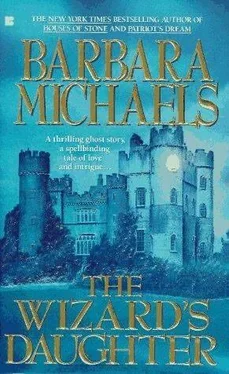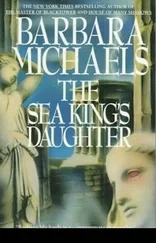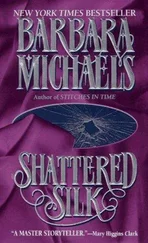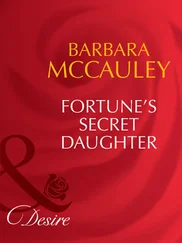Barbara Michaels - The Wizard’s Daughter
Здесь есть возможность читать онлайн «Barbara Michaels - The Wizard’s Daughter» весь текст электронной книги совершенно бесплатно (целиком полную версию без сокращений). В некоторых случаях можно слушать аудио, скачать через торрент в формате fb2 и присутствует краткое содержание. Жанр: Детектив, на английском языке. Описание произведения, (предисловие) а так же отзывы посетителей доступны на портале библиотеки ЛибКат.
- Название:The Wizard’s Daughter
- Автор:
- Жанр:
- Год:неизвестен
- ISBN:нет данных
- Рейтинг книги:4 / 5. Голосов: 1
-
Избранное:Добавить в избранное
- Отзывы:
-
Ваша оценка:
- 80
- 1
- 2
- 3
- 4
- 5
The Wizard’s Daughter: краткое содержание, описание и аннотация
Предлагаем к чтению аннотацию, описание, краткое содержание или предисловие (зависит от того, что написал сам автор книги «The Wizard’s Daughter»). Если вы не нашли необходимую информацию о книге — напишите в комментариях, мы постараемся отыскать её.
The Wizard’s Daughter — читать онлайн бесплатно полную книгу (весь текст) целиком
Ниже представлен текст книги, разбитый по страницам. Система сохранения места последней прочитанной страницы, позволяет с удобством читать онлайн бесплатно книгу «The Wizard’s Daughter», без необходимости каждый раз заново искать на чём Вы остановились. Поставьте закладку, и сможете в любой момент перейти на страницу, на которой закончили чтение.
Интервал:
Закладка:
With his enigmatic speech he rose lazily to his feet, just in time to greet the woman who had appeared in the door of the box.
In the days of Queen Victoria's predecessors the opera often served as just another social gathering. The gentry visited one another's boxes during the intervals and continued loud conversations during the actual performance, to the annoyance of the genuine music lovers present. The influence of Victoria's solemn young German prince, equally fond of music and of decorum, had halted this; but Lady Morton was a survival of an earlier age and, as the lawyer had predicted, she was at the door of her friend's box the moment the last strains of music died. Barely acknowledging the Duchess's greeting and introductions – "My young friend Miss Ransom" – she settled into the chair Carlton had vacated and fixed Marianne with a bold stare.
The stare was even more formidable at close range, and its effect was increased by Lady Morton's extreme strabismus. Not only did she squint, but one eye was turned so far to the left of its normal position that only a white orb confronted the victim. The only thing that saved Marianne from nervous paralysis was the fact that Lady Morton undoubtedly did look like a horse – not just any horse, but a wall-eyed, evil-tempered old stallion who had been the tyrant of the Squire's stables till he died of extreme old age.
The ensuing conversation – or rather, inquisition – was notable as an example of how rude an elderly titled lady could be without being reprimanded or cut dead. It began with an inquiry into Marianne's family.
"Ransom. I once knew a Harold Ransom. He was up at Christ Church with my brother."
"That would not be a connection of mine," Marianne replied.
"There are Ransoms in Devonshire."
Marianne shook her head. The lady's squint became positively malignant. "Then where the devil are you from, miss?"
There being no way of evading this demand without rudeness, Marianne replied, "Yorkshire, Lady Morton."
"What part of Yorkshire?"
Marianne had no legitimate reason for wishing to avoid these questions. Nevertheless, they made her squirm, and that streak of obstinacy which her golden curls and soft blue eyes masked so effectively rebelled against Lady Morton's impertinence. She gave the lawyer an anguished glance, but he merely smiled more broadly, enjoying her discomfiture.
Mercifully the Duchess herself came to the rescue, breaking up the tete-a-tete by introducing the other visitors who had crowded the box to bursting point. "Lord Ronald… The Honorable Miss Ditherson… Lord Willoughby…" All were of the Duchess's generation, and all were as curious as Lady Morton. But they were not so ill-bred, and the sheer number of them, which forced conversation to become general, saved Marianne from further questions. She saw that the Duchess had drawn Lady Morton away; they were speaking softly but urgently.
The warning bell sounded and the visitors rose to leave. Lady Morton was, of course, the last to go, and thus Marianne was enabled to overhear a snatch of conversation between the two ladies. "I promise you I will arrange it; shall we say Thursday?" the Duchess asked.
Lady Morton nodded, and shot a glance at Marianne. "Don't forget, Honoria. If anyone has a claim to matters involving our dear departed -"
But instead of a name Lady Morton emitted a grunt of pain, clutching her side and glaring indignantly at Lord Ronald, who had passed her on his way out. The elderly nobleman went on, unaware. He, as Marianne could see, had never come within touching distance of Lady Morton. If the idea had not seemed so ludicrous she would have sworn that the Duchess's elbow had jabbed into her old friend's ribs.
"Dear me, what a crush," said the Duchess, her color a trifle high. "William" – addressing the footman, who was closing the door on Lady Morton – "deny us, please, in the next interval; this is really too much, it interferes with one's enjoyment of the music."
Thanks to this directive the remainder of Lucia di Lammermoor passed without interruption, and the second interval was spent in quiet conversation. Yet Marianne was increasingly distracted by an odd sense of being watched, not by the stares of casual curiosity seekers, but by something more intense and more inimical. So strong had her discomfort become by the end of the opera that she was scarcely aware of the music and could hardly wait to leave.
The crush down the stairs and across the lobby was so great that she had to cling closely to Roger Carlton's arm. He treated her as he would treat any rather boring young lady to whom he was obliged to be polite. They had almost reached the exit when she saw it – a face, distinct as a carved and tinted mask, staring directly into her eyes over the backs of the crowd ahead. The features had burned themselves into her memory: the sallow, lined skin, the piercing black eyes, the twisted, evil smile.
Marianne shrieked and clutched at her escort. Her voice was drowned in the general noise; only Carlton heard it and only he felt the frantic grasp of her hands. Thinking she had slipped or been rudely shoved, he tightened his grasp; but when he glanced at her he could see that something more serious had occurred.
"What the devil…? I beg your pardon. Are you ill?"
"It was he," Marianne gasped. "I should have known. I felt him all evening, staring…"
"Who?"
"Mr. Bagshot."
"Where?"
"There, by the door." But when she looked again, the evil face had vanished.
Carlton surveyed the crowd. He shook his head.
"I don't see him. The opera is not his type of entertainment, Miss Ransom. Are you sure it was not your imagination?"
"No, no! I tell you, I saw him! And he recognized me!"
"Hush," Carlton said. "No talk of this before the Duchess, do you hear me? It would distress her. I assure you, you are in no danger from -"
"A figment of my imagination?"
Carlton shrugged. Marianne said no more. Bitterly she realized that she could not even relieve her fears by speaking of them. The Duchess must not be worried, the doctor was antagonistic to her, and Carlton was… probably right. Perhaps the fleeting, frightening glimpse had only been a phantom of her uneasy mind.
CHAPTER SEVEN
On Thursday evening Marianne went through the routine of dressing for dinner with less than her usual pleasure in that sybaritic exercise. It had been a dreary, wet day, and darkness had descended early. She could hear the steady beat of the rain against the curtained windows, though the bright lights and blazing fire created a small inner world of comfort.
Her gown had been finished that afternoon by a harried Madame LeFarge, the most fashionable dressmaker in London. It was of pale-blue brocaded tulle with panels of satin bordered with pearls across the bodice and down the full skirt. Marianne contemplated her reflection with satisfaction. She had never looked so well. Yet a tiny frown marred the smoothness of her white forehead.
Over her shoulder reflected in the glass, she saw the face of her maid. The Frenchwoman's unlined cheeks and neat dark hair did not in the slightest resemble that other face she had once seen similarly reflected; but the memory stabbed painfully into Marianne's conscience., and she dismissed Celeste. After the maid had gone she did not sit down; to do so would have crumpled her gown, and besides, she was unaccountably restless. She began pacing up and down the room.
It was the first time she had been alone since early morning, and her thoughts were not pleasant companions. Guilt had haunted her since that night at the opera. The sight of Bagshot – if it had been he, and not a fear-inspired vision – had reminded her of Maggie. In the beginning she had been unable to help the woman who had risked so much to save her, that was true; but since the change in her fortune she had done little to locate Maggie, when she could very well have done more.
Читать дальшеИнтервал:
Закладка:
Похожие книги на «The Wizard’s Daughter»
Представляем Вашему вниманию похожие книги на «The Wizard’s Daughter» списком для выбора. Мы отобрали схожую по названию и смыслу литературу в надежде предоставить читателям больше вариантов отыскать новые, интересные, ещё непрочитанные произведения.
Обсуждение, отзывы о книге «The Wizard’s Daughter» и просто собственные мнения читателей. Оставьте ваши комментарии, напишите, что Вы думаете о произведении, его смысле или главных героях. Укажите что конкретно понравилось, а что нет, и почему Вы так считаете.












